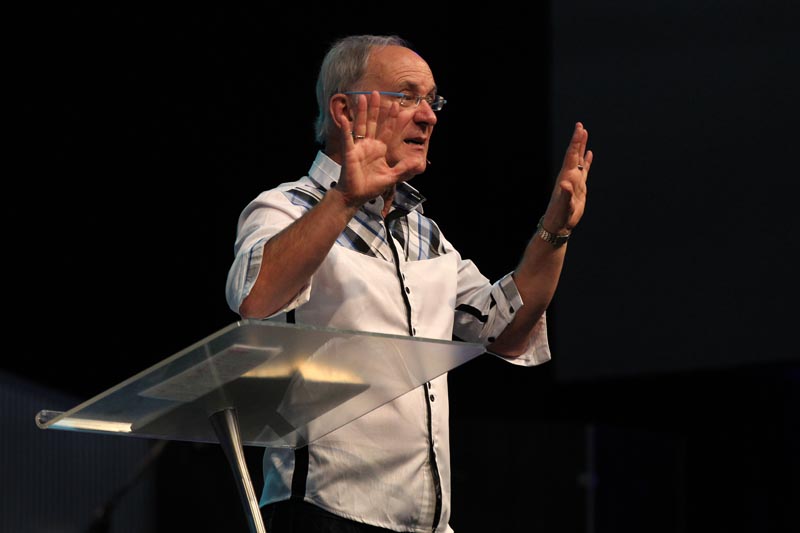 Pentecost is about meeting with God. Mount Sinai was completely covered in smoke, because the Lord descended upon it in fire. Then the blast of the trumpet sounded long, and came louder and louder, Moses spoke, and God answered him by voice. Now that's the first Pentecost. It's about engaging in intimacy with God. It was no work, no labour, no striving, no struggling, and they gave to the poor.
Pentecost is about meeting with God. Mount Sinai was completely covered in smoke, because the Lord descended upon it in fire. Then the blast of the trumpet sounded long, and came louder and louder, Moses spoke, and God answered him by voice. Now that's the first Pentecost. It's about engaging in intimacy with God. It was no work, no labour, no striving, no struggling, and they gave to the poor.
How many knew it was Pentecost Sunday this Sunday? Well that's fantastic, so Pentecost Sunday. I thought well if it's Pentecost Sunday, we should focus on that this Sunday, so we're going to go back quickly to the Old Testament, then I want to pick up three things in the New Testament. It helps if we get a context for it, and so let's go in the Old Testament, the first Pentecost, oh how glorious! Look at this, Exodus 19.
It came to pass on the third day, in the morning, there were thunderings and lightnings, a thick cloud on the mountain; the sound of trumpet was very loud, and all the people in the camp trembled! Oh glory! And Moses brought the people out of the camp - and here's what it's about - to meet with God. Pentecost is about meeting with God - and they stood at the foot of the mountain. Mount Sinai was completely covered in smoke, because the Lord descended upon it in fire. Its smoke ascended like the smoke of a furnace, the whole mountain shook. Now that is something! Then the blast of the trumpet sounded long, and came louder and louder, Moses spoke, and God answered him by voice. Now that's the first Pentecost. Isn't that fantastic?
The first Pentecost was a meeting of God with His people. It was a demonstration of the nature, the power, the goodness of God. Notice that. Smoke and thunder and lightnings, mountains shaking - that's not something hidden away is it? That's something that's so visible, that everyone got a bit scared of it; then they heard the voice talking from the mountain. This is the first experience of Pentecost. I won't go into the Hebrew background of this, but very simply when you look at the whole context of it, God was meeting with them, to invite them into a marriage relationship with Him. There are many pictures and symbols in there that indicate that the Hebrews would have understood this, including what happened after, the giving of the law as being God entering into a marriage relationship with a people, for the very first time in history.
So Pentecost is not just about the smoke and thunder and lightnings and fires. It's about engaging in intimacy with God. That's what it's primarily about. We're going to look at two or three things related to it shortly. Let's have a look in Leviticus, Chapter 23. This was such an important feast, one of three major feasts, that God required they remember the feast, and interestingly enough He talks about it in Leviticus 23. You know I'm going to go to Acts, but I'll get there in just a moment. He says now - in Verse 16 - count 50 days - Pentecost is 50 - 50 days to the day after the seventh Sabbath; then you'll offer a new grain offering to the Lord. So notice that they count 50 days, 50 days after Passover was the Feast of Pentecost. Then on that day, it was a new offering to the Lord. In other words, it was a meeting with God again. Now when you came to Christ, Christ became your Passover. You experienced the power of salvation. You experienced change in your life, but now He's saying there's another meeting with God.
This one is to enter into intimacy with Him, and so notice He makes several things about it - I'll come back to this, and refer to these a little later, because they're quite important.
Notice it says that He says: you'll bring an offering. You'll come to God, presenting something. The second thing I want you to notice is this. In Verse 21 it says: this is a holy gathering or convocation to you. Do not ordinary work on it. So notice this: come with an offering, and no work. We'll show you what this means just shortly, and how vital this is. This is giving us an idea of what is about to come up, in terms of living and walking in the spirit. It's about an offering to God; and no work; no struggling, striving or trying. You actually rested on that day, so Pentecost then was a day when they rested, and it was a day of engaging God, and they rested.